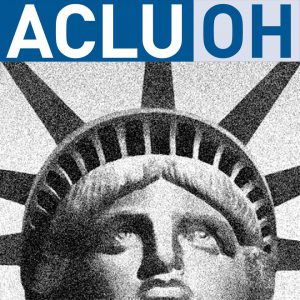Let’s be honest. The election of Donald Trump as president felt like a kick in the gut to many supporters of the ACLU of Ohio. The size of Trump’s victory in the Buckeye State—eight percentage points—was especially disheartening for those who defend the rights of people whom our next president attacked: people of color, women, immigrants, people with disabilities, and others.
But electoral grief should not last long. Having the wind knocked out of your sails is not the same as getting knocked out. In truth, we weren’t even knocked down, much less knocked out—even if it feels otherwise now.
The ACLU of Ohio is a non-partisan organization that defends individual rights, not political candidates or parties. We have no permanent friends or enemies. The candidate who supports our stance on access to abortion may oppose us on criminal justice reform or vice versa. Since 1920, we have operated in the same persistent, ultimately successful way: we work with anyone, anywhere, anytime, who will defend our constitutional rights. At the same time, we will hold all government officials accountable—regardless of political party—when they don’t respect reproductive rights, voting rights, LGBT rights, privacy rights, free speech rights and so on.
How will the ACLU of Ohio’s work change over the next four years? We cannot say for sure, but the “work with/fight back” ratio always fluctuates depending on who is in power. It is a good bet that we may need to do a little (or a lot!) more fighting back if Donald Trump and Mike Pence try to strip immigrants, women, LGBT people and others of their basic human rights. On the other hand, people sometimes surprise you or are open to finding common ground on certain issues.
Our Ohio experience shows that thoughtful cooperation mixed with thoughtful opposition can lead to surprisingly positive results. The Buckeye State has operated under one-party (Republican) control of all branches of government for 17 of the last 21 years, including the last six. Yet despite being under the control of Trump’s party, the ACLU of Ohio has put together legislative accomplishments on difficult issues, notably on criminal justice reform. For example, House Bill 86 in 2011 changed sentencing guidelines to begin reducing the prison population. Senate Bill 337 in 2012 removed restrictions limiting criminal defendants’ ability to work.
When agreement could not be reached, the ACLU of Ohio has had success in court. In September, we won a federal appeals court decision to stop Secretary of State Jon Husted from illegally purging voter rolls. In 2015, we reached an agreement with Husted to protect evening and weekend early voting opportunities. These were big accomplishments in a seemingly unfriendly political environment.
It is not easy or fun living with elected officials who oppose many basic rights. More often, it is frustrating and exhausting. But is it necessary? “Yes” is only partially correct. “Yes, more than ever!” is the real answer. It’s terrifying to think that defenders of liberty may feel too beaten down to stand up for the powerless because of a single election loss.
Fights that did not have to happen are coming. Donald Trump wants to dramatically expand private prisons to jail immigrants whom he wants to deport. Financial markets are betting he will succeed; Corrections Corporation of America stock went up 45% the day after the election.
Mike Pence signed Indiana’s “Religious Freedom Restoration Act,” allowing discrimination against LGBT people when he was governor. He supports “conversion therapy,” opposes LGBT people in the military, wants a constitutional amendment to end marriage equality and does not want transgender people to use the bathroom of the gender they identify. These positions are radical and would undermine important gains we have made for LGBT rights.
The election of a president with authoritarian leanings is sad and scary. But we have had bad presidents before. What happened? We worked harder and made progress anyway.
Let’s not forget that the people are on our side—even many Trump supporters. Trump lost the popular vote. On the day he was elected, marijuana reform won at the ballot in eight states, including four that voted for Trump. On Election Day, Oklahoma voters supported Trump and major criminal justice reform (reclassifying many drug and property offenses from felonies to misdemeanors), both by large margins.
The Rev. Dr. Martin Luther King, Jr. gave wise advice that applies to the 2016 presidential election: “Accept finite disappointment, but never lose infinite hope.” A recent politician gave advice another way: “Fired up ,” he said. As a non-partisan organization, we won’t finish his campaign slogan, except to say that as the four-year term of President Donald J. Trump approaches, the ACLU of Ohio is ready to go. We hope you are too!

